 Your new post is loading...
 Your new post is loading...

|
Scooped by
Gust MEES
|
At first, many faculty sought to replicate online what they normally do in a classroom. They soon discovered this was not a strategy that was practical, as not all students could access synchronous classes reliably and many had challenges, such as other siblings or parents needing access to the technology, the costs of broadband Internet access exceeding their ability to pay, or were in different time zones. Nor was it efficient.
In fact, what faculty began to discover is what has been known for some time. There is “no empirical evidence that says that classroom instruction benefits students (compared to alternatives) from a learning achievement perspective”, a finding from the Centre for the Study of Learning and Performance at Concordia University. Faculty began to experiment with personal challenges, small group work, project-based learning and the recording of short videos. They began to explore pedagogy, the science and art of instruction based on design.
Faculty sought help from colleagues with previous experience teaching online, looking for evidence for what worked in their discipline. They were inspired by examples for creative arts and music, where Zoom rehearsals and performances produced remarkable and life-changing events. Some discovered open education resources, materials, labs, videos, simulations, games, that helped them find new ways of engaging their online learners. Some truly innovative design ideas emerged, such a course on COVID-19 in which a different “angle” (epidemiology, economics, psychology, virology, politics) became the focus for each week taught by a faculty member from that discipline. Learn more / En savoir plus / Mehr erfahren: https://www.scoop.it/topic/21st-century-learning-and-teaching/?&tag=pedagogy

|
Scooped by
Gust MEES
|
I was fortunate to be able to share my thoughts on how digital content curation may be implemented as a powerful pedagogical approach in the latest issue of SCIS Connections. Learn more / En savoir plus / Mehr erfahren: https://gustmees.wordpress.com/?s=curation

|
Scooped by
Gust MEES
|
What would you say are a few of the biggest myths about growth mindset?
OK, myth No.1 is the myth that it’s all about effort, and that you instil it by praising effort. Effort is one factor that leads to learning. So the ultimate value is growth, progress, learning. And effort is one thing that leads there but there are many other things – strategies, using resources, getting advice, guidance and mentorship, and when people leave that out and just praise effort, it’s not transmitting a growth mindset. Adults have nagged children for centuries to try harder. That’s not a growth mindset, it’s an adult nagging a child to try harder!
Also, we find that when teachers think it’s just about effort and praising effort they may praise effort that isn’t even there, or that’s not effective. So if a child tries hard at something and you say ‘great job, you tried hard’, but they didn’t make progress, they didn’t advance, you’re actually conveying a fixed mindset because you’re saying ‘great effort, I didn’t really expect you to do that, and I don’t expect you to do that, so I’m trying to make you feel good about not doing it’. So we need people to understand that it’s appreciating a variety of process variables that lead to learning.
The second myth is that you can teach students a lesson on growth mindset and put a poster up in the front of the room, and that’s that, that they will have a growth mindset from then on. And we know if the teacher doesn’t then embody a growth mindset, if teachers don’t embody growth mindsets in their teaching practices, in the way that they give feedback when the child is stuck, and the way they present a new unit, in the way that they give opportunities for revision and growth of understanding – if they don’t embody that growth mindset, they are not teaching it. And in fact, if their behaviour contradicts the poster at the front of the room, then maybe they’re doing a disservice. Learn more / En savoir plus / Mehr erfahren: http://www.scoop.it/t/21st-century-learning-and-teaching/?&tag=carol+dweck http://www.scoop.it/t/21st-century-learning-and-teaching/?&tag=Growth+Mindset

|
Scooped by
Gust MEES
|

|
Scooped by
Gust MEES
|
Teacher professional learning is of increasing interest as one way to support the increasingly complex skills students need to learn in preparation for further education and work in the 21st century. Sophisticated forms of teaching are needed to develop student competencies such as deep mastery of challenging content, critical thinking, complex problem-solving, effective communication and collaboration, and self-direction. In turn, effective professional development (PD) is needed to help teachers learn and refine the pedagogies required to teach these skills. However, research has shown that many PD initiatives appear ineffective in supporting changes in teacher practices and student learning. Accordingly, we set out to discover the features of effective PD. This paper reviews 35 methodologically rigorous studies that have demonstrated a positive link between teacher professional development, teaching practices, and student outcomes. We identify the features of these approaches and offer rich descriptions of these models to inform those seeking to understand the nature of the initiatives. Learn more / En savoir plus / Mehr erfahren: https://gustmees.wordpress.com/?s=coaching https://gustmees.wordpress.com/?s=professional+development

|
Scooped by
Gust MEES
|
False growth mindset is saying you have growth mindset when you don’t really have it or you don’t really understand [what it is]. It’s also false in the sense that nobody has a growth mindset in everything all the time. Everyone is a mixture of fixed and growth mindsets. You could have a predominant growth mindset in an area but there can still be things that trigger you into a fixed mindset trait. Something really challenging and outside your comfort zone can trigger it, or, if you encounter someone who is much better than you at something you pride yourself on, you can think “Oh, that person has ability, not me.” So I think we all, students and adults, have to look for our fixed-mindset triggers and understand when we are falling into that mindset.
I think a lot of what happened [with false growth mindset among educators] is that instead of taking this long and difficult journey, where you work on understanding your triggers, working with them, and over time being able to stay in a growth mindset more and more, many educators just said, “Oh yeah, I have a growth mindset” because either they know it’s the right mindset to have or they understood it in a way that made it seem easy. Learn more / En savoir plus / Mehr erfahren: http://www.scoop.it/t/21st-century-learning-and-teaching/?tag=Growth+Mindset https://gustmees.wordpress.com/2016/11/14/pssst-the-most-important-in-education-understanding/ https://gustmees.wordpress.com/2016/11/01/getting-ready-for-modern-education-first-try-to-understand-what-it-is/

|
Scooped by
Gust MEES
|
IF A, B, C aren't understood then Z will be a disaster!!! First of all I won't have a look about the How-To students do, BUT about the TEACHers, EDUcators (LEHRENDE) do on Social Media Twitter and Facebook which I am analyzing since 2009 already. THAT’S the persons in EDUcation which have THE responsibility to prepare OUR students, learners for the workingforce/labour/industry!! Learn more / en savoir plus / Mehr erfahren: https://gustmees.wordpress.com/2015/11/27/unlearning-the-old-relearning-learning-to-learn-howto/

|
Scooped by
Gust MEES
|
Researchers from the University of Otago, New Zealand, wanted to find out if engaging in normal creative acts make people feel better. An analysis of the information found a pattern of more enthusiasm and higher ‘flourishing’ following days when the undergraduates were more creative.
Study author Dr Tamlin Conner said: ‘There is growing recognition in psychology research that creativity is associated with emotional functioning.
‘However, most of this work focuses on how emotions benefit or hamper creativity, not whether creativity benefits or hampers emotional wellbeing.’ Learn more / En savoir plus / Mehr erfahren: http://www.scoop.it/t/21st-century-learning-and-teaching/?tag=Empathy http://www.scoop.it/t/21st-century-learning-and-teaching/?tag=Soft+Skills
Teachers should embrace a radical pedagogy and provoke students to demand equality for themselves and others, argues vice principal Tait Coles Schools must develop a commitment to civic courage and social responsibility that ignites bravery in young people to realise they have the power and opportunity to challenge the status quo. School leaders have a duty to promote learning that encourage students to question rather than forcing teachers to lead drill-oriented, stimulus-and-response methodologies. Teachers must awaken the passions of their students and teach the knowledge and skills needed to direct and sustain it. Students need the freedom and encouragement to determine and discover who they are and to understand that the system shouldn't define them – but rather give them the skills, knowledge and beliefs to understand that they can set the agenda. Educators must be prepared to embrace a radical pedagogy and believe that each school should be one of freedom that provokes students to fight against the corridors of power and enforce equality for themselves and others. Critical pedagogy is the only way to achieve this. The philosophy was first described by Paulo Freire and has since been developed by the likes of Henry Giroux, Peter McLaren and Roger Simon. Critical pedagogy isn't a prescriptive set of practices – it's a continuous moral project that enables young people to develop a social awareness of freedom. This pedagogy connects classroom learning with the experiences, histories and resources that every student brings to their school. It allows students to understand that with knowledge comes power; the power that can enable young people to do something differently in their moment in time and take positive and constructive action. Learn more / En savoir plus / Mehr erfahren: http://www.scoop.it/t/21st-century-learning-and-teaching/?tag=Radical+Pedagogy
Via Nik Peachey

|
Scooped by
Gust MEES
|
What is Phenomenon-Based Learning?
Finland will go through a new education reform that will take over in the academic year 2016-2017. Phenomenon-Based Learning will be complementing Finland’s traditional subjects. The Phenomenon or Topic Based Learning is being planned to be conducted over periods during the year and could be paced in projects – is the old new in Finland’s education. For more than three decades, Finnish schools have had a form of Phenomenon-Based Learning. What will change in 2016-2017 is that it will be obligatory in all basic schools for seven to 16-year-olds.
Phenomenon-Based Learning tackles real-world scenarios holistically from different subject areas’ perspectives. This method will entail a rich learning experience, which is relevant to learners’ lives. The interdisciplinary learning could be conducted in a simple way, by linking similar knowledge areas between different subjects and introducing them at the same slot of the academic year. This develops awareness of how curricula intersect to form the broader frame of knowledge. A more sophisticated interdisciplinary approach, such as Phenomenon-Based Learning occurs when we go beyond simply linking different subjects to applying, organising centers and essential questions to plan topic teaching. One example could be the questions students have about a topic such as the importance of the European Union. To answer these questions knowledge and skills from economics, history, geography and languages are to be integrated.
Learn more / En savoir plus / Mehr erfahren: http://www.scoop.it/t/21st-century-learning-and-teaching/?tag=Finland http://www.scoop.it/t/21st-century-learning-and-teaching/?tag=Phenomenon+Based+Learning

|
Scooped by
Gust MEES
|
Das Lernhauskonzept ist ein Modell, das pädagogische, architektonische und organisatorische Strukturen miteinander verbindet. Eine Schule wird dabei in Unterschulen unterteilt, die über jeweils eigene Strukturen und Räume verfügen. Lehrer*innen arbeiten in Teams, die die Schüler*innen über längere Zeit begleiten.

|
Scooped by
Gust MEES
|
|

|
Scooped by
Gust MEES
|
What does innovation in pedagogy look like?
It is generally acknowledged that the quality of an educational system depends upon the quality of its teachers. In focusing on the importance of pedagogies it is possible to argue that to help students meet new educational challenges, teachers need to reflect upon and update their repertoire of practices. Preparing young people to meet new contemporary challenges means reviewing and updating the pedagogies teachers use. Innovation at the level of practice must be seen as a normal response to addressing the daily challenges of a constantly changing classroom. Change is not an extra, but a pedagogical problem-solving process that builds on the creative, intuitive and personal capacities of teachers. The new OECD publication, Teachers as Designers of Learning Environments: The Importance of Innovative Pedagogies, aims to help teachers navigate the huge number of promising practices and new approaches within the innovation landscape. It builds on the analysis of six clusters of innovative pedagogies and the insights of networks of innovative schools to offer a baseline from which teachers can innovate themselves. Learn more / En savoir plus / Mehr erfahren: http://www.scoop.it/t/21st-century-learning-and-teaching/?tag=innovation http://www.scoop.it/t/21st-century-learning-and-teaching/?tag=Rise+of+the+Professional+Educator

|
Scooped by
Gust MEES
|

|
Scooped by
Gust MEES
|
This Glossary explains influences related to student achievement published in John Hattie’s Visible Learning for teachers (Hattie 2012; 251ff). You can find an older list of influences related to student achievement in Hattie (2009) Visible Learning. 1. Student Self-Reported Grades2. Piagetian programs3. Response to intervention4. Teacher credibilityAccording to Hattie teacher credibility is vital to learning, and students are very perceptive about knowing which teachers can make a difference. There are four key factors of credibility: trust, competence, dynamism and immediacy. In an interviewHattie puts it like that: “If a teacher is not perceived as credible, the students just turn off.” Examples for teacher credibility: Earn trust by showing trust towards pupils. Appear highly organised in the presentation of the subject matter. Develop a powerful style of speaking that uses few verbal hesitancies such as “OK” or “you know”. Reduce distance between teachers and students by moving or moving away from barriers (e.g., desk, podiums). Source: cie.asu.edu 5. Providing formative evaluation6. Micro-teaching7. Classroom discussion8. Comprehensive interventions for learning disabled students9. Teacher clarity10. Feedback Learn more / En savoir plus / Mehr erfahren: https://gustmees.wordpress.com/2014/10/03/design-the-learning-of-your-learners-students-ideas/ https://gustmees.wordpress.com/2015/07/19/learning-path-for-professional-21st-century-learning-by-ict-practice/
Project work challenges students to think beyond the boundaries of the classroom, helping them develop the skills, behaviors, and confidence necessary for success in the 21st-century. Designing learning environments that help students question, analyze, evaluate, and extrapolate their plans, conclusions, and ideas, leading them to higher–order thinking, requires feedback and evaluation that goes beyond a letter or number grade. The term “authentic assessment” is used to describe assessment that evaluates content knowledge as well as additional skills like creativity, collaboration, problem-solving, and innovation.
Authentic assessment documents the learning that occurs during the project-building process and considers the real-world skills of collaboration, problem solving, decision making, and communication. Since project work requires students to apply knowledge and skills throughout the project-building process, you will have many opportunities to assess work quality, understanding, and participation from the moment students begin working. Learn more / En savoir plus / Mehr erfahren: http://www.scoop.it/t/21st-century-learning-and-teaching/?&tag=rubric https://www.themespark.net/rubric/545a3834a500ffef33dd248b
Via Jim Lerman, Ivon Prefontaine, PhD

|
Scooped by
Gust MEES
|
In science, we build a firm foundation and then we keep renovating the house. We find interesting results, we are fascinated by them, we don’t always trust them, so we go back and replicate them. We also challenge them by asking, where will this not work? When does the effect go away? How can we use better methods to test our theories?
As part of this process, scientists ask each other questions. Recently, other scientists asked us some questions about three of our papers. We took this very seriously, carefully considered each inquiry, delved into the studies again (in some cases reanalyzing the data), and prepared three documents, each detailing our process and our findings (here, here, and here). In each case, we showed that the conclusions reached in the paper were sound. But, as with anything that helps make science better, we were grateful for the questions because they pointed out areas for improvement or clarity, and because we believe in open science.
It is important however to consider these questions in light of a large body of work. The growth mindset story does not rest on a handful of isolated studies. Research in this area has been ongoing for 30 years and the field has amassed a large body of work. A meta-analysis published in 2013 found 113 studies conducted by many authors and concluded that mindsets are a significant factor in people’s self-regulation toward goals.
Meta-analyses are helpful, but not the final word. Government data collected at a country level—all the 10th grade students in the country of Chile (over 160,000)—showed that holding a growth mindset predicted academic achievement at every socioeconomic level. Recently, the state of California, collecting data from over 100,000 middle schoolers, found that students’ mindsets were a good predictor of their test scores. And this doesn’t include many experimental studies that have carefully oriented children (or adults) toward different mindsets and found effects on outcomes. It is highly unlikely that mindset is a phantom phenomenon. Learn more / En savoir plus / Mehr erfahren: http://www.scoop.it/t/21st-century-learning-and-teaching/?tag=carol+dweck

|
Scooped by
Gust MEES
|

|
Scooped by
Gust MEES
|

|
Scooped by
Gust MEES
|

|
Scooped by
Gust MEES
|

|
Scooped by
Gust MEES
|
When it comes to education, the Finnish know what they’re doing. The Scandinavian country has one of the top education systems in the world, and this year, ranked number one in literacy. So what’s Finland’s secret? It’s simple: more play, less work. Learn more / En savoir plus / Mehr erfahren: http://www.scoop.it/t/21st-century-learning-and-teaching/?tag=Finland

|
Scooped by
Gust MEES
|

|
Scooped by
Gust MEES
|
I believe in the potential power of blogging. I believe it can be harnessed to be a powerful pedagogical tool in the 21st Century. 4 Benefits of Integrating Blogging into Pedagogy 1. Blogs promote participation and collaboration of knowledge and skills. There are a myriad of resources available on the internet that can help students become creators, and not merely consumers of different texts and bodies of knowledge. 2. Blogs promote global communication and collaboration. Teachers can facilitate interactions with diverse cultures, ethnicities, and religions, and social contexts. Students can be helped to challenging their thinking by considering other viewpoints. 3. Blogs promote the critical analysis of pedagogy and literacies. 4. Blogs create the potential for interactive spaces for authentic exchanges. Strategies including reading logs, book reviews, parental communication, encouraging reading and writing and responding around a particular theme or focus. If we can harness this power, we have a strong pedagogical tool on our hands. As with other areas in education, we can begin to harness this power by asking ourselves the right kinds of questions that can bring about the results we want to see. Learn more / En savoir plus / Mehr erfahren: https://gustmees.wordpress.com/2016/06/06/blogging-is-it-difficult-i-guess-not-a-all-follow-my-advice/ https://gustmees.wordpress.com/2013/03/25/practice/ https://gustmees.wordpress.com/2013/10/14/practice-using-blogs-for-home-work-to-get-ict-skills-and-creativity/
|



 Your new post is loading...
Your new post is loading...








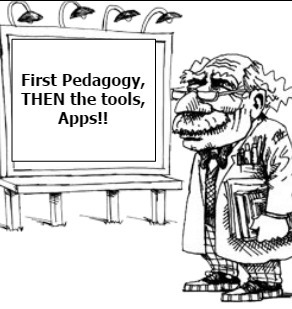

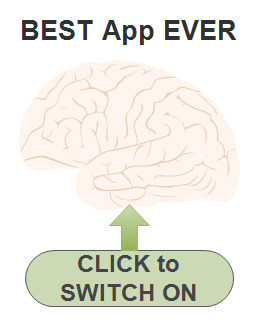
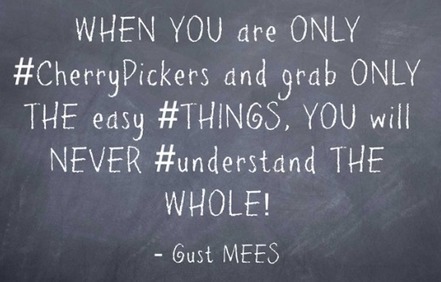
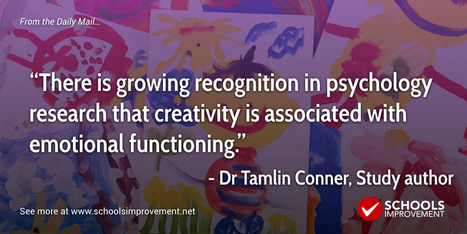








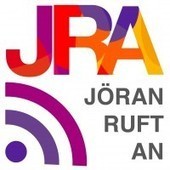




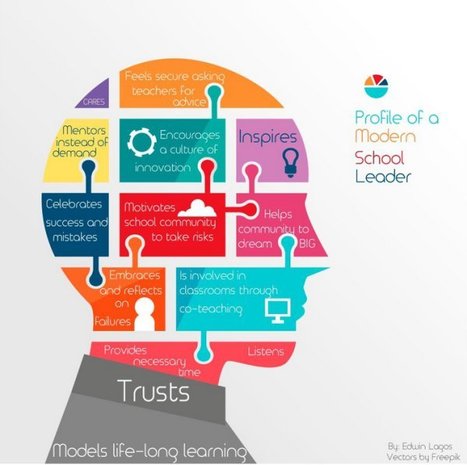

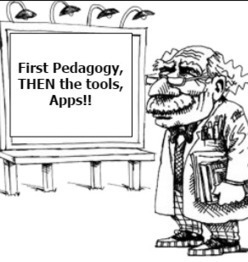
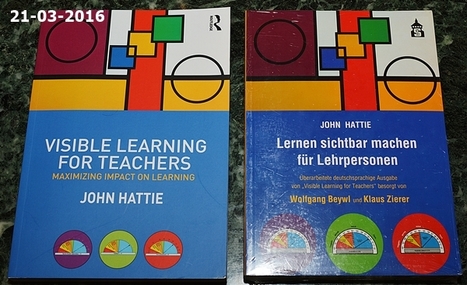






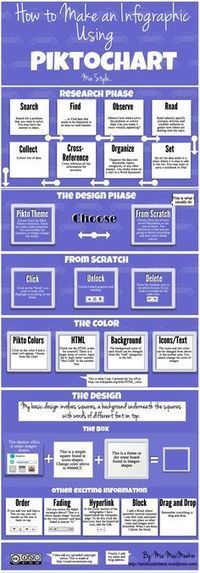




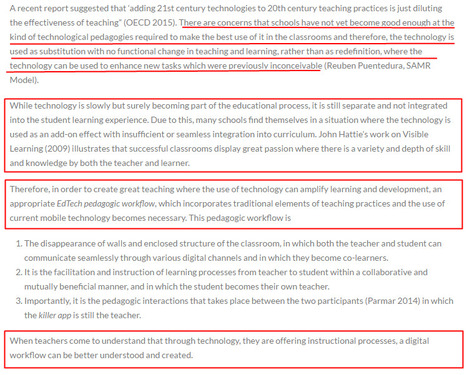







At first, many faculty sought to replicate online what they normally do in a classroom. They soon discovered this was not a strategy that was practical, as not all students could access synchronous classes reliably and many had challenges, such as other siblings or parents needing access to the technology, the costs of broadband Internet access exceeding their ability to pay, or were in different time zones. Nor was it efficient.
In fact, what faculty began to discover is what has been known for some time. There is “no empirical evidence that says that classroom instruction benefits students (compared to alternatives) from a learning achievement perspective”, a finding from the Centre for the Study of Learning and Performance at Concordia University. Faculty began to experiment with personal challenges, small group work, project-based learning and the recording of short videos. They began to explore pedagogy, the science and art of instruction based on design.
Faculty sought help from colleagues with previous experience teaching online, looking for evidence for what worked in their discipline. They were inspired by examples for creative arts and music, where Zoom rehearsals and performances produced remarkable and life-changing events. Some discovered open education resources, materials, labs, videos, simulations, games, that helped them find new ways of engaging their online learners. Some truly innovative design ideas emerged, such a course on COVID-19 in which a different “angle” (epidemiology, economics, psychology, virology, politics) became the focus for each week taught by a faculty member from that discipline.
Learn more / En savoir plus / Mehr erfahren:
https://www.scoop.it/topic/21st-century-learning-and-teaching/?&tag=pedagogy